
As we’re watching the launch of the Dragon, I was reminded that they’re currently growing radishes in the Advanced Plant Habitat up on the International Space Station. 🙂
Peace,
-S


As we’re watching the launch of the Dragon, I was reminded that they’re currently growing radishes in the Advanced Plant Habitat up on the International Space Station. 🙂
Peace,
-S
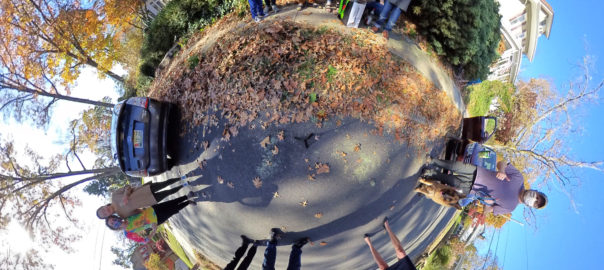
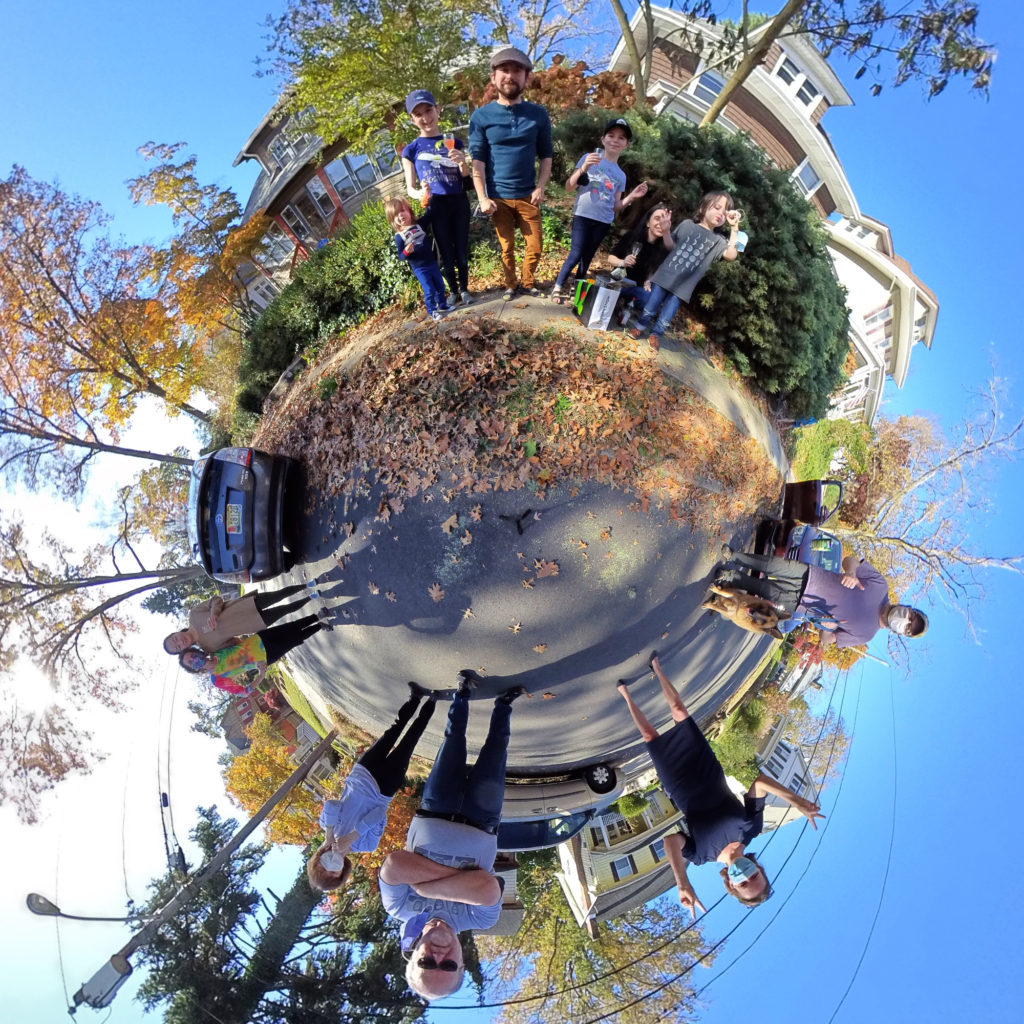
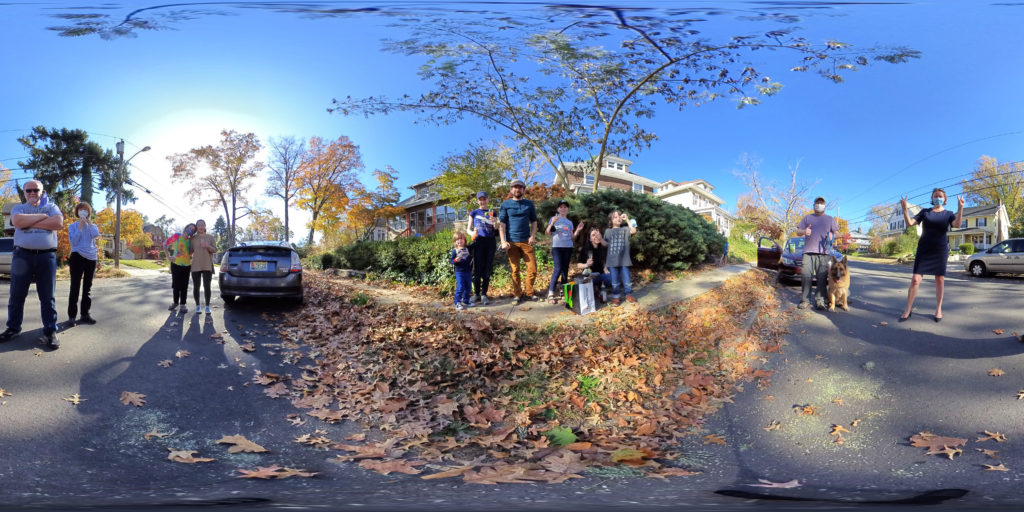
So the camera I use for shooting lessons has a 360 mod, and I put it to use today to shoot an impromptu gathering. 🙂
Peace,
-S
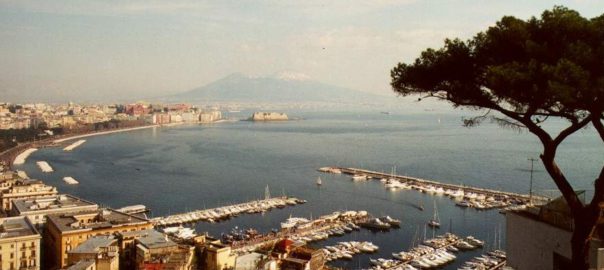
This particular song was a common sentiment among Italian immigrants to America at the turn of the century. Given that today is Columbus Day, it seems only fitting to remember. Here is Roberto Murolo singing it:
| Original Napuletano | My translation |
| Mme ne vogl’i’ a ll’America, Ca sta luntana assaje. Mme ne vogl’i’ addò maje Te pozzo ‘ncuntrà cchiù. | I wish about going to America, Which is far away. I wish about where never I can encounter you anymore. |
| Mme voglio scurdà ‘o cielo, Tutt’ ‘e ccanzone e ‘o mare. Mme voglio scurdà ‘e Napule, Mme voglio scurdà ‘e mammema, Mme voglio scurdà ‘e te. | I want to forget the sky, All the songs and the sea. I want to forget about Naples, I want to forget about my mother, I want to forget about you. |
| Nun voglio cchiù nutizie D’amice e d’ ‘e pariente. Nun voglio sapè niente ‘E chello ca se fa! | I don’t want news anymore About friends and of relatives. I don’t wan to know anything About that which happens! |
| Mme voglio scurdà ‘o cielo, Tutt’ ‘e ccanzone e ‘o mare. Mme voglio scurdà ‘e Napule, Mme voglio scurdà ‘e mammema, Mme voglio scurdà ‘e te. | I want to forget the sky, All the songs and the sea. I want to forget about Naples, I want to forget about my mother, I want to forget about you. |
| Ma quanto è bella Napule! Stanotte è bella assaje! Nun ll’aggio vista maje Cchiù bella ‘e comm’a mò! | But how beautiful is Naples! This evening is gorgeous! I have never seen it So beautiful like this now! |
| Comme mme scordo ‘o cielo, Tutt’ ‘e ccanzone e ‘o mare? Comme mme scordo ‘e Napule? Comme mme scordo ‘e mammema? Comme mme scordo ‘e te? | How could I forget the sky, All of the songs and the sea? How could I forget about Naples? How could I forget about my mother? How could I forget about you? |
Featured image from Wikipedia.

This is a poem about a ghost story that takes place on November 2nd (All Souls Day). It starts out in Standard Italian, but very quickly ends up in Neapolitan – but from there it shifts registers between two of the characters (one being more formal, the other more mean). I’ve tried to translate it while keeping it 1) more or less true to the original words, and 2) in meter and rhyme – which I admit was tough to do in a few places.
Here’s a video of Totò, himself, performing it. See if you can keep up:
| Original Napuletano | My translation (in verse) |
| Ogn’anno, il due novembre, c’è l’usanza per i defunti andare al Cimitero. Ognuno ll’adda fa’ chesta crianza; ognuno adda tené chistu penziero. | Each year, on November 2nd, it is usually customary, for each of us who has lost someone, To visit the cemetery. |
| Ogn’anno, puntualmente, in questo giorno, di questa triste e mesta ricorrenza, anch’io ci vado, e con dei fiori adorno il loculo marmoreo ‘e zi’ Vicenza. | Every year and without fail, on this sad and gloomy day, I go there too, flowers in-hand for Aunt Vincenza’s grave. |
| St’anno m’è capitata ‘n’avventura… dopo di aver compiuto il triste omaggio (Madonna!), si ce penzo, che paura! ma po’ facette un’anema ‘e curaggio. | This year was different for after having completed this sad homage, (Mother of God!) To think of it, I nearly lost my courage. |
| ‘O fatto è chisto, statemi a sentire: s’avvicenava ll’ora d”a chiusura: io, tomo tomo, stavo per uscire buttando un occhio a qualche sepoltura. | This is what happened, so listen up! For it was quite the scare: At closing time, I wandered by, looking at graves here and there. |
| «QUI DORME IN PACE IL NOBILE MARCHESE SIGNORE DI ROVIGO E DI BELLUNO ARDIMENTOSO EROE DI MILLE IMPRESE MORTO L’11 MAGGIO DEL ’31». | One read: “HERE RESTS THE NOBLE MARQUIS LORD OF ROVIGO AND OF BELLUN’ HERO OF A THOUSAND DEEDS DEAD MAY 11th 1931″ |
| ‘O stemma cu ‘a curona ‘ncoppa a tutto… …sotto ‘na croce fatta ‘e lampadine; tre mazze ‘e rose cu ‘na lista ‘e lutto: cannele, cannelotte e sei lumine. | The coat of arms with a crown on top Below a cross of lights imposes, Six candles and a votive lamp Among a bunch of roses. |
| Proprio azzeccata ‘a tomba ‘e stu signore nce steva n’ata tomba piccerella, abbandunata, senza manco un fiore; pe’ segno, sulamente ‘na crucella. | Next to the tomb of this noble man stood another grave, very small, Forlorn, with not a flower on it, Just a cross… and that was all. |
| E ncoppa ‘a croce appena se liggeva: «ESPOSITO GENNARO NETTURBINO» Guardannola, che ppena me faceva stu muorto senza manco nu lumino! | Atop the cross it was hard to see The script was faint and wan, And as I read it I was saddened: “HERE LIES GENNARO, THE GARBAGE MAN” |
| Questa è la vita! ‘Ncapo a me penzavo… chi ha avuto tanto e chi nun ave niente! Stu povero maronna s’aspettava ca pure all’atu munno era pezzente? | Such is life! I told myself He had nothing when he died. Did this poor man ever expect, to be a wretch on the other side? |
| Mentre fantasticavo stu penziero, s’era ggià fatta quase mezanotte, e i’ rummanette ‘nchiuso priggiuniero, muorto ‘e paura… nnanze ‘e cannelotte. | And as I thought, midnight chimed, And closing time arrived. Scared to death I found the gate was locked with me inside! |
| Tutto a ‘nu tratto, che veco ‘a luntano? Ddoje ombre avvicenarse ‘a parte mia… Penzaje: stu fatto a me mme pare strano… Stongo scetato… dormo, o è fantasia? | Suddenly what do I notice? Two shadows coming towards me. Am I awake? Or am I asleep? Or is this all just fantasy? |
| Ate che fantasia; era ‘o Marchese: c”o tubbo, ‘a caramella e c”o pastrano; chill’ato appriesso a isso un brutto arnese: tutto fetente e cu ‘na scopa mmano. | No dream! It was the Marquis there With top hat, coat – all grand – And behind him was a nasty figure Stinking, with broom in hand. |
| E chillo certamente è don Gennaro.. ‘o muorto puveriello… ‘o scupatore. ‘Int’ a stu fatto i’ nun ce veco chiaro: so’ muorte e se retireno a chest’ora? | That was, for sure, Gennaro The garbage man looking dour. But wait, they’re dead! Why are they here? Walking at this hour? |
| Bah… | Oh well… |
| Putevano stà ‘a me quase ‘nu palmo, quando ‘o Marchese se fermaje ‘e botto, s’avota e, tomo tomo… calmo calmo, dicette a don Gennaro: «Giovanotto! | They were perhaps a breath away, The Marquis then quickly stopped. He turned sharply to Gennaro and “Young man!” he sternly yalped. |
| Da voi vorrei saper, vile carogna, con quale ardire e come avete osato di farvi seppellir, per mia vergogna, accanto a me che sono un blasonato?! | “I’d like to know, you filthy wretch, Why you have so dared, To inter yourself right next to me It’s shameful, you are aware? |
| La casta è casta e va, sì, rispettata, ma voi perdeste il senso e la misura; la vostra salma andava, sì, inumata; ma seppellita nella spazzatura! | Caste is caste, and noble blood Commands respect that runs so deep. Your body, on the other hand, Should be in the garbage heap! |
| Ancora oltre sopportar non posso la vostra vicinanza puzzolente. Fa d’uopo, quindi, che cerchiate un fosso tra i vostri pari, tra la vostra gente». | No more can I tolerate your stink or common face. Therefore you should find a proper grave, More suitable to your place.” |
| «Signor Marchese, nun è colpa mia, i’ nun v’avesse fatto chistu tuorto; mia moglie è stata a ffa’ sta fessaria, i’ che putevo fa’ si ero muorto? | “Mister Marquis, it was not my fault to insult you like you’ve said. It was my wife who did this deed, what could I do since I was dead? |
| Si fosse vivo ve farrie cuntento, pigliasse ‘a casciulella cu ‘e qquatt’osse, e proprio mo, obbj’… ‘nd’a stu mumento mme ne trasesse dinto a n’ata fossa». | Were I alive, I’d gather up The few bones that I could save. And take them with me right away And find another grave.” |
| «E cosa aspetti, oh turpe malcreato, che l’ira mia raggiunga l’eccedenza? Se io non fossi stato un titolato avrei già dato piglio alla violenza!» | “So why the wait? You filthy wretch, Must my wrath overflow? If I hadn’t been a titled man, This would have come to blows!” |
| «Famme vedé… – piglia sta violenza… ‘A verità, Marché’, mme so’ scucciato ‘e te sentì; e si perdo ‘a pacienza, mme scordo ca so’ muorto e so’ mazzate!… | “What’s this now? Show me then! The fact really is, Marquis, If this is how you truly feel You’ll be catching blows from me! |
| Ma chi te cride d’essere… nu ddio? Ccà dinto, ‘o vvuò capì, ca simmo eguale?… … Muorto si’ tu e muorto so’ pur’io; ognuno comme a ‘n’ato è tale e qquale». | What do you think? That you are God? That really is deceitful. Dead are you and dead I am, And here we are but equals!” |
| «Lurido porco!… Come ti permetti paragonarti a me ch’ebbi natali illustri, nobilissimi e perfetti, da fare invidia a Principi Reali?». | “You filthy swine! How dare you doubt that which my lineage evinces! The blood that runs in my veins here is that of royal princes!” |
| «Tu qua’ Natale… Pasca e Ppifania!!! T”o vvuo’ mettere ‘ncapo… ‘int”a cervella che staje malato ancora ‘e fantasia?… ‘A morte ‘o ssaje ched’è?… è una livella. | “From princes flows this royal blood This lineage in which you revel? You are diseased with a delusion! Do you know what death is? It’s a Level. |
| ‘Nu rre, ‘nu maggistrato, ‘nu grand’ommo, trasenno stu canciello ha fatt”o punto c’ha perzo tutto, ‘a vita e pure ‘o nomme: tu nun t’hè fatto ancora chistu cunto? | A king, a prince, a great man who walks through these gates at hand, They have lost but everything. Do you not yet understand? |
| Perciò, stamme a ssentì… nun fa’ ‘o restivo, suppuorteme vicino – che te ‘mporta? Sti ppagliacciate ‘e ffanno sulo ‘e vive: nuje simmo serie… appartenimmo a morte!». | So listen up, and don’t be a fool, To argue beyond your last breath. Only the living indulge these fantasies, We both here… belong to Death!” |
Featured image from: https://www.napoliunplugged.com/the-valley-of-the-dead-naples-fontanelle-cemetery.html
by Gianni Polverino
English translation my own
’O Ggiovedí Santo
è na jurnata triste,
fuje ll’urdema cena
’e Ggesú Cristo.
Cu ppane e vvino
nzieme a Ggesú,
a ’sta tavula
ce stive pure tu.
Si a cchesta jurnata
tu ce pienze,
pàssate ’a mana
p’ ’a cuscienza.
Maundy Thursday
is a sad day
it was the Last Supper
of Jesus Christ.
With bread and wine
together with Jesus
at this table
you were there, too.
If on this day
you think about it,
give a hand
to your conscience.*
*pàssate ’a mana p’ ’a cuscienza literally means “Give the hand to the conscience” but in English is more like “Ask your conscience” or “Do what you know is right.”

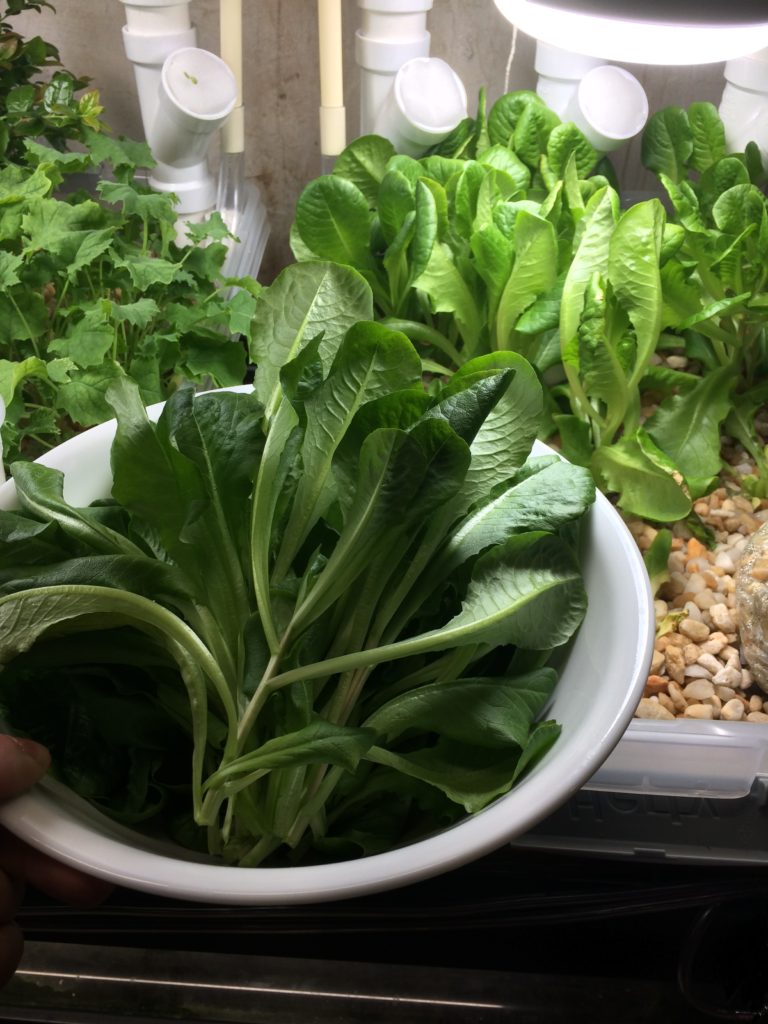
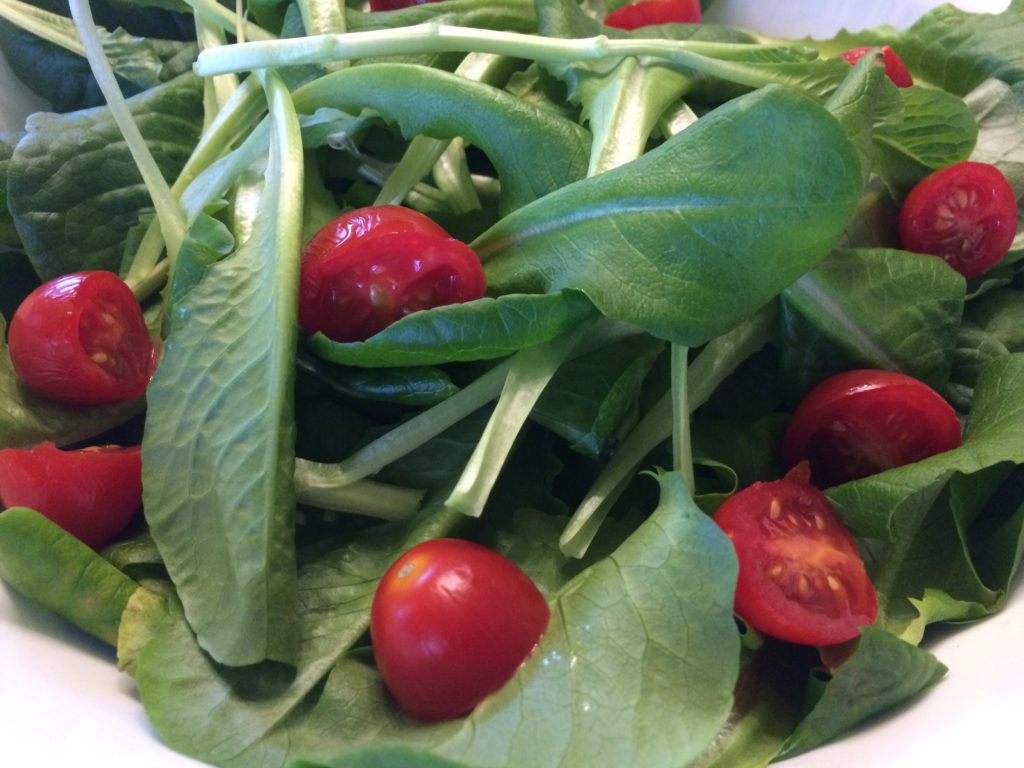
It got a little leggy, but it tastes magnificent. 🙂
Peace,
-Steve
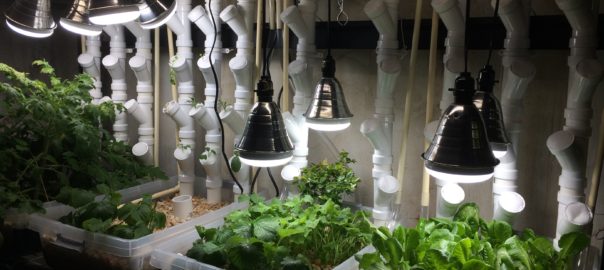
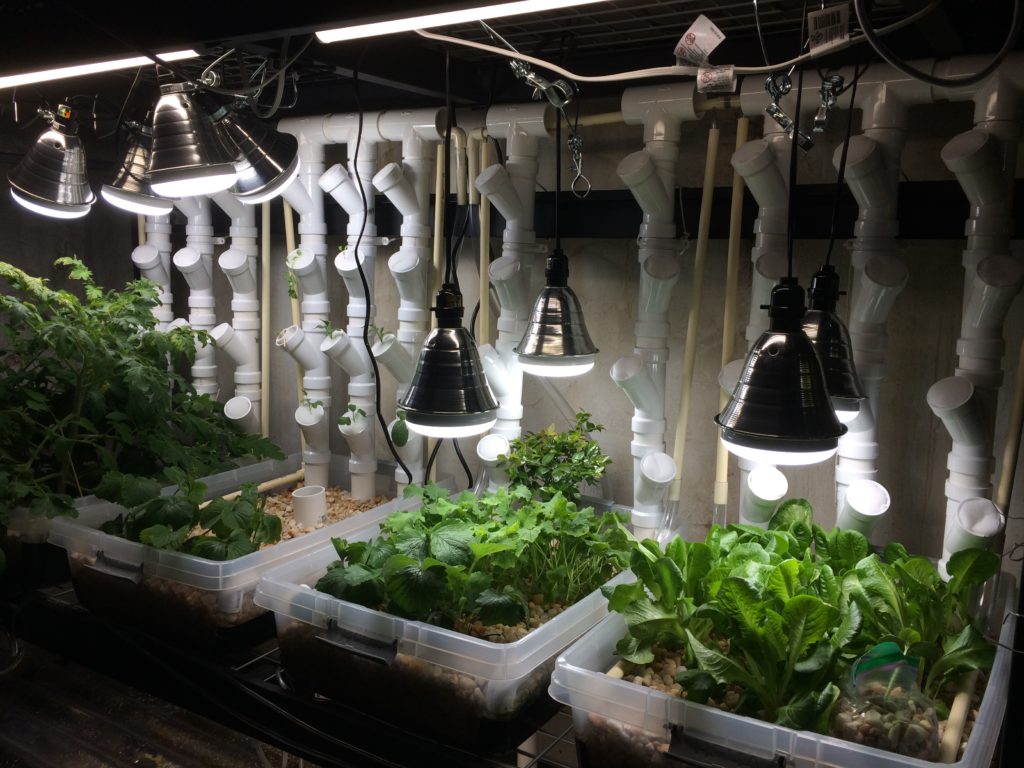
Last night I finally installed the rest of the drip wall in the back of my bigger rig. Where I originally planned out 48 bays, I had to settle with 44, because I forgot I planted the blueberry bush in an awkward position (so I’ll be training it to grow upwards in the place where the bay would be.
The plumbing was tricky, since I didn’t have all the parts I needed (and I learned on the fly a number of curious properties of hydrodynamics) but each set of grow beds is now fed from 5 ports on the spray bar on top made out of 1/2″ CPVC and 1/4″ tubing.
Three of the ports feed the three drip towers in the back of the bed (with one exception), where two are routed to he front corners of the bed (where I may install some additional drip towers, facing inwards, too, to catch the wasted light). Once parts come in, I’ll be making all of them more efficient by feeding them from their centers with a CPVC T-coupling rather than on the ends.
Successful plants to take to the the drip towers as of now include broccoli, chard, and one spaghetti squash (on the bottom, which I’m going to train to dangle over the edge of the shelf). More seedlings are on their way, growing Kratky-style in plastic containers until they’re large enough to survive the transplant.
It’s also time to do some cable management and clean things up a bit.
Peace,
-S
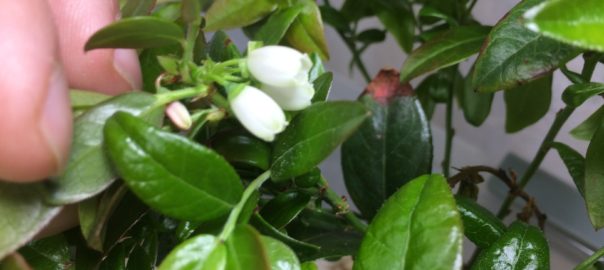
Had a surprise today. My tomatoes were already putting out flowers – and now they’re putting out bunches – but the strawberries have put out their first two blooms, and the blueberries were a complete surprise. The instructions for that cultivar stated that it could take up to two years for the plant to fruit, and just a month later we have berries on the way. 🙂
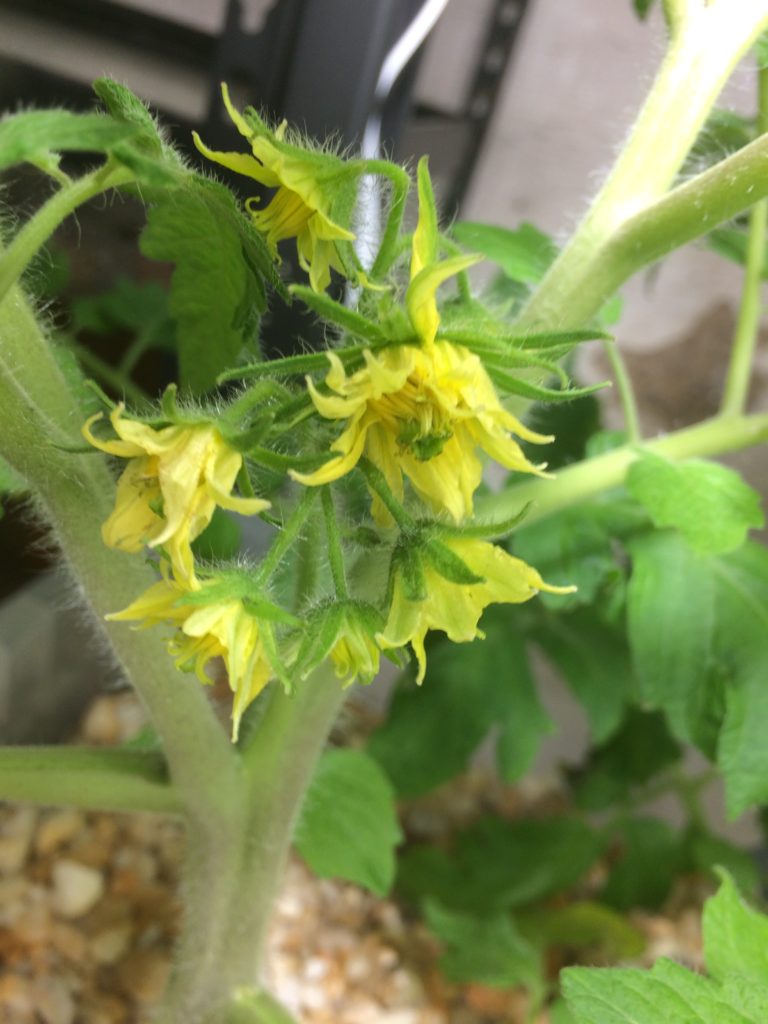
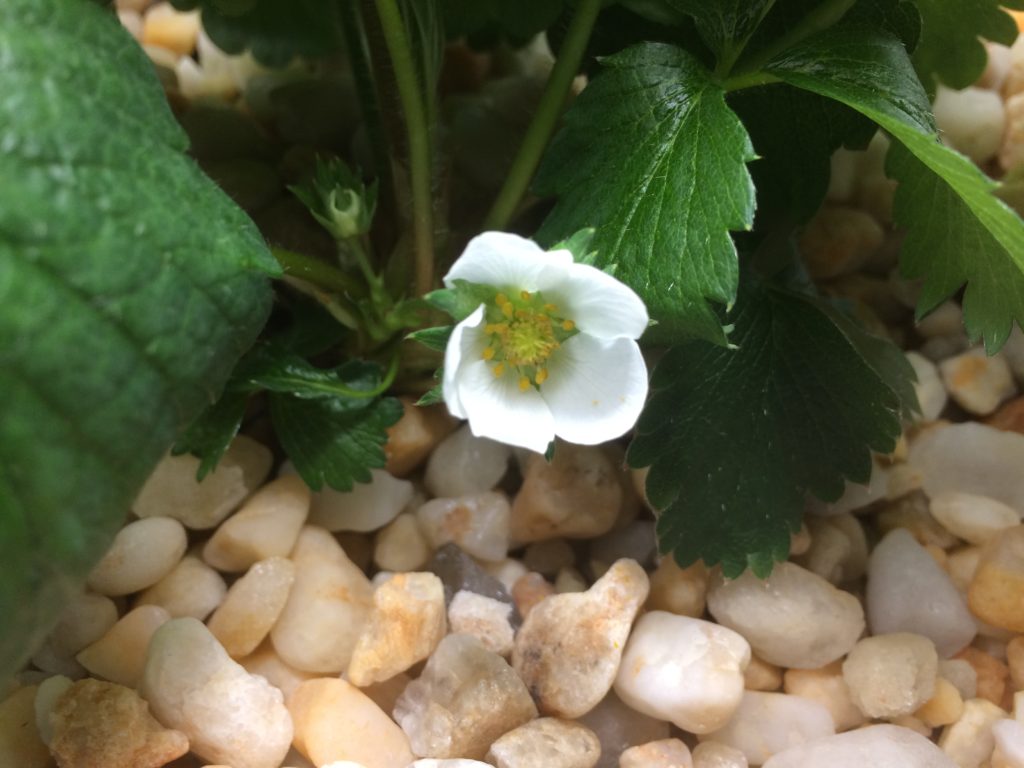
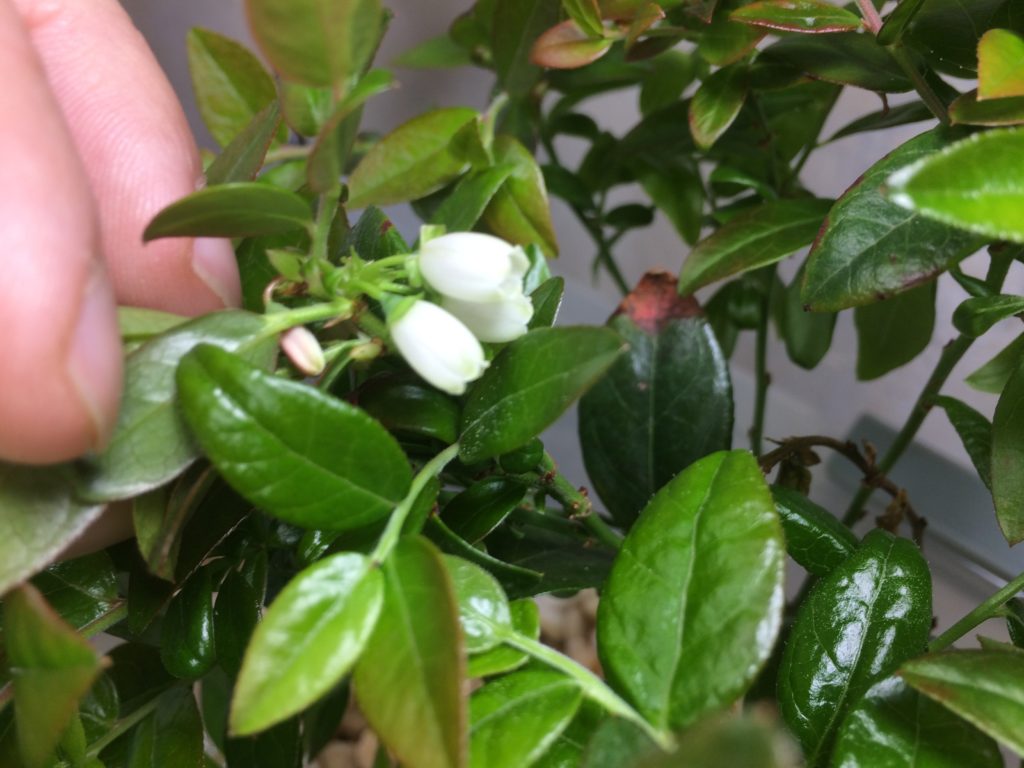
Peace,
-Steve
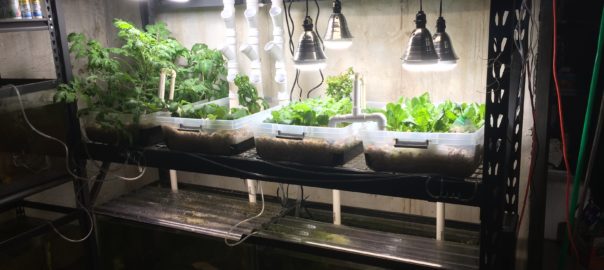
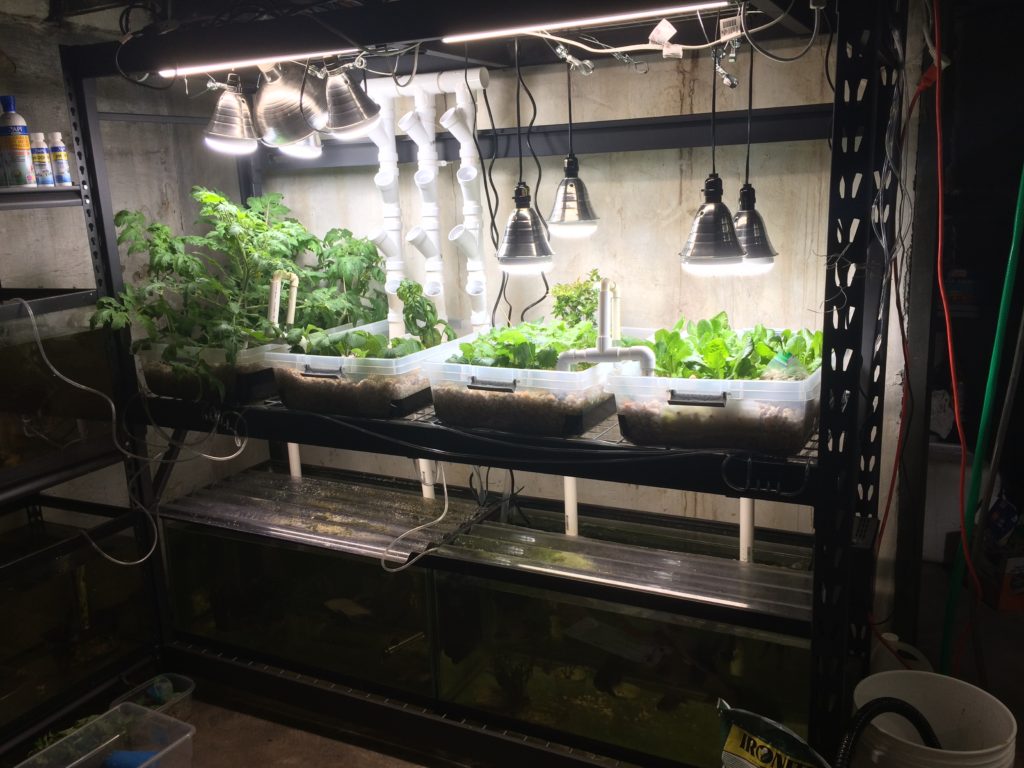
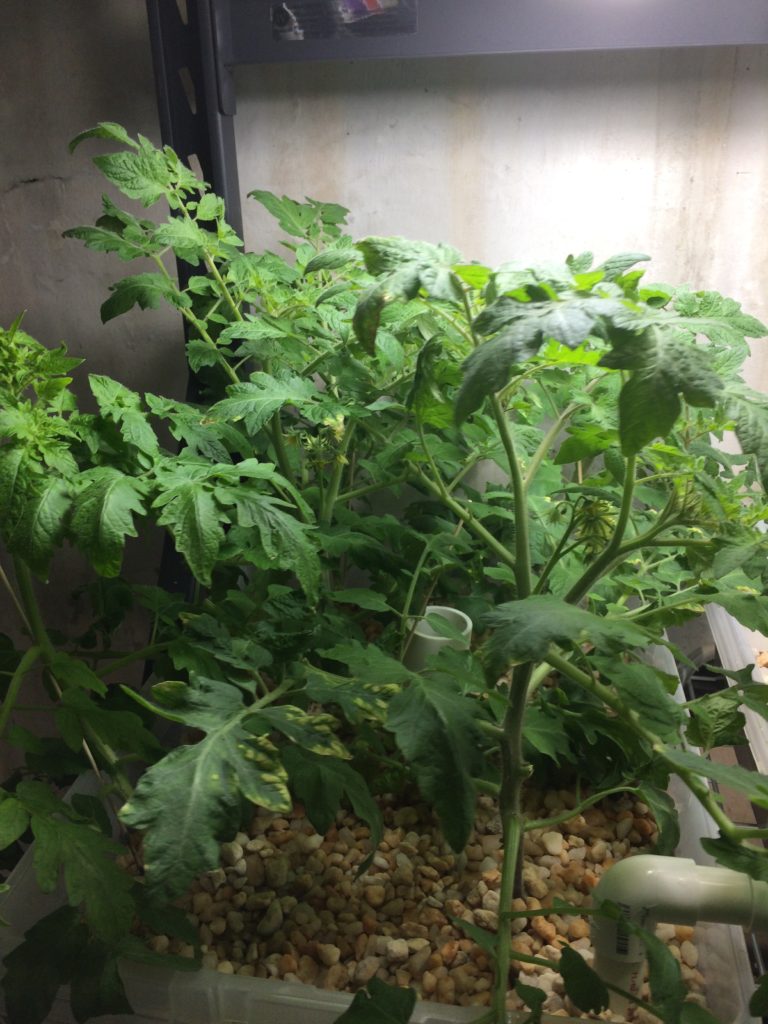
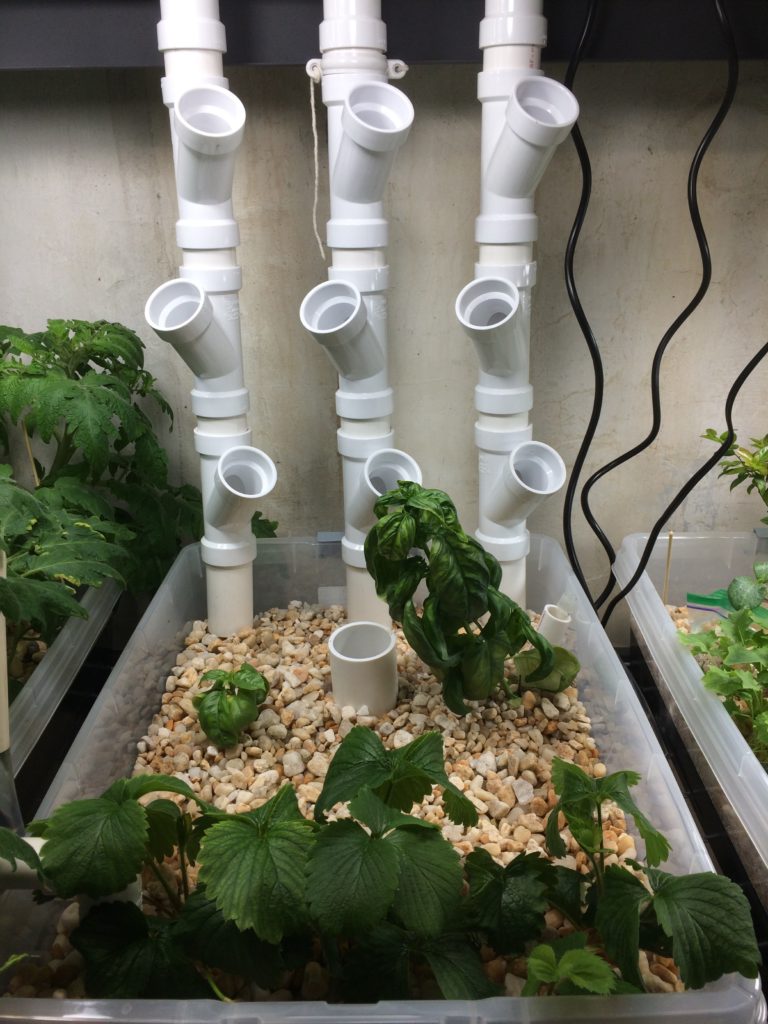
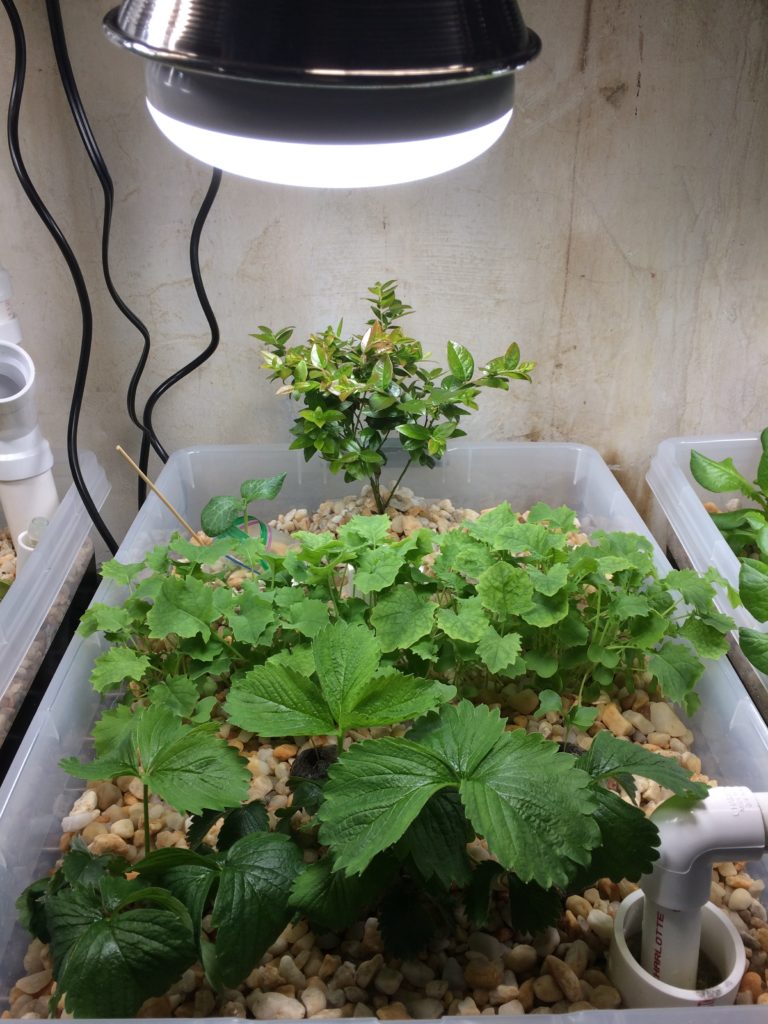
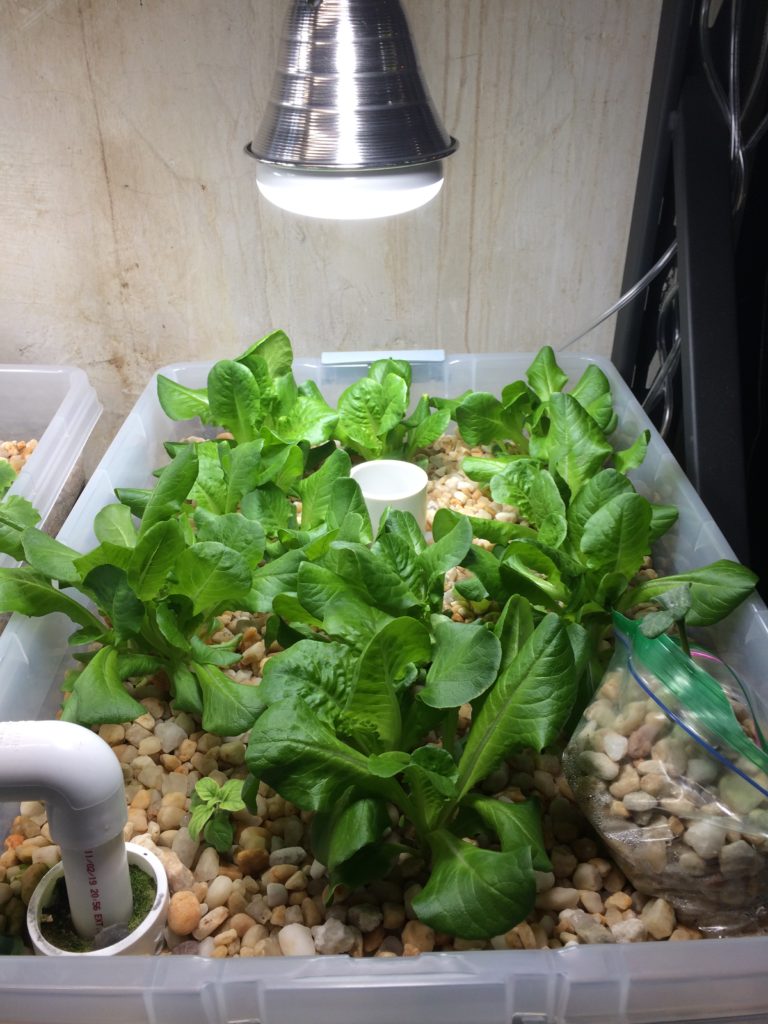
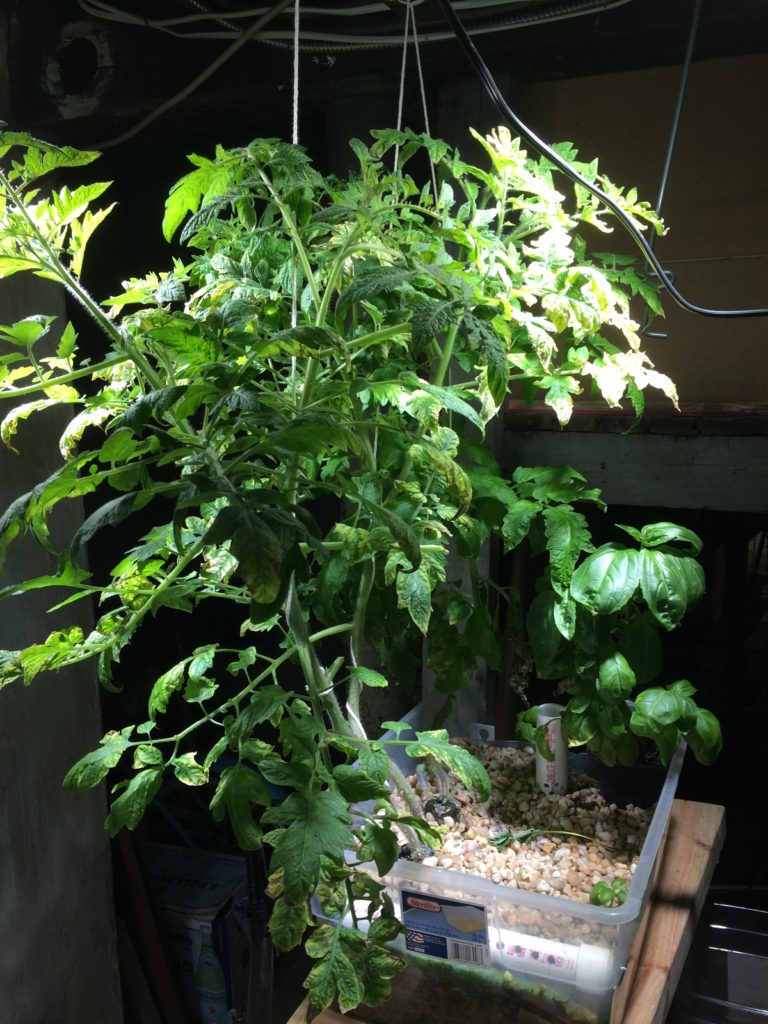
The pipes behind what’s left of the basil are eventually going to go all the way across, so I will have 48 additional bays for plants like lettuce, chard, and strawberries.
Peace,
-S
“Ogni mpedimento è ggiuvamento.”
-Neapolitan Proverb
“Every impediment is a benefit.”
I was reminded of this in the midst of social distancing due to CoVID-19. This particular impediment will ultimately benefit us. But it’s going to suck in the meantime.
Peace,
-S